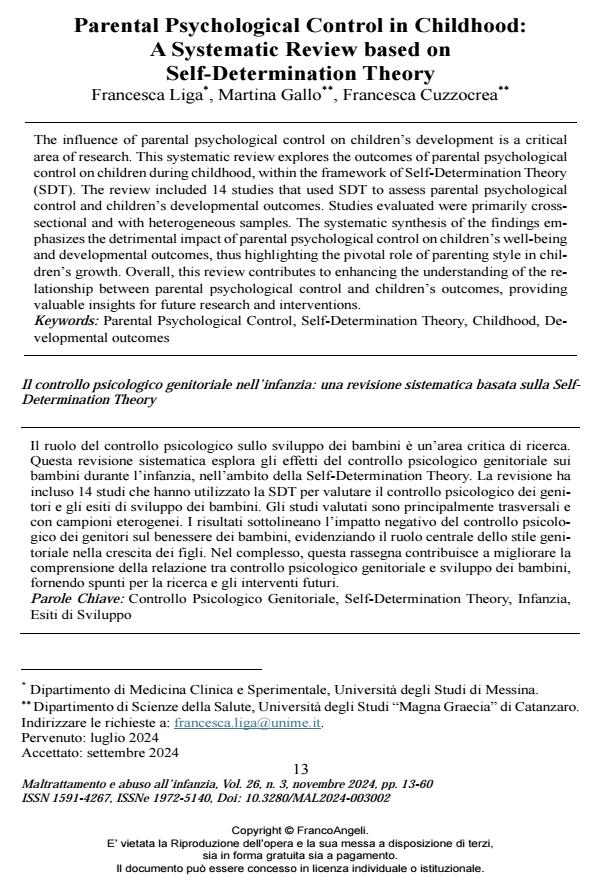Il controllo psicologico genitoriale nell’infanzia: una revisione sistematica basata sulla Self- Determination Theory
Journal title MALTRATTAMENTO E ABUSO ALL’INFANZIA
Author/s Francesca Liga, Martina Gallo, Francesca Cuzzocrea
Publishing Year 2024 Issue 2024/3
Language English Pages 48 P. 13-60 File size 313 KB
DOI 10.3280/MAL2024-003002
DOI is like a bar code for intellectual property: to have more infomation
click here
Below, you can see the article first page
If you want to buy this article in PDF format, you can do it, following the instructions to buy download credits

FrancoAngeli is member of Publishers International Linking Association, Inc (PILA), a not-for-profit association which run the CrossRef service enabling links to and from online scholarly content.
The influence of parental psychological control on children’s development is a critical area of research. This systematic review explores the outcomes of parental psychological con-trol on children during childhood, within the framework of Self-Determination Theory (SDT). The review included 14 studies that used SDT to assess parental psychological control and children’s developmental outcomes. Studies evaluated were primarily cross-sectional and with heterogeneous samples. The systematic synthesis of the findings em-phasizes the detrimental impact of parental psychological control on children’s well-being and developmental outcomes, thus highlighting the pivotal role of parenting style in chil-dren’s growth. Overall, this review contributes to enhancing the understanding of the rela-tionship between parental psychological control and children’s outcomes, providing valu-able insights for future research and interventions.
Keywords: Parental Psychological Control, Self-Determination Theory, Childhood, De-velopmental outcomes
Francesca Liga, Martina Gallo, Francesca Cuzzocrea, Parental Psychological Control in Childhood: A Systematic Review based on Self-Determination Theory in "MALTRATTAMENTO E ABUSO ALL’INFANZIA" 3/2024, pp 13-60, DOI: 10.3280/MAL2024-003002